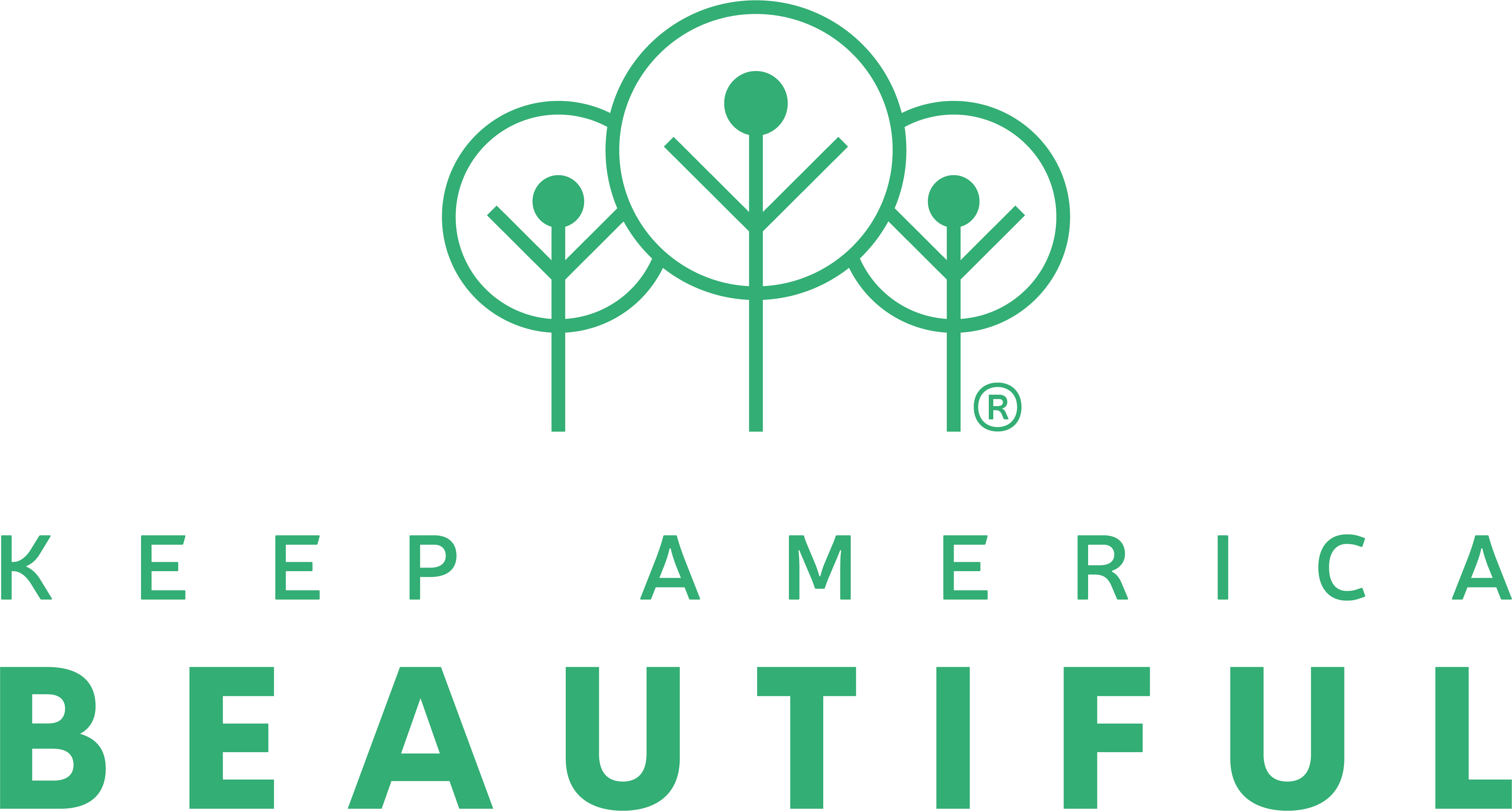Keep America Beautiful’s Cigarette Litter Prevention Program Distributes $275,000 in Grants to More than 70 Organizations
National Initiative Reports Nearly 50 Percent Reduction in Cigarette Litter in Participating Communities
STAMFORD, Conn., March 4, 2015 /3BL Media/ – Keep America Beautiful’s Cigarette Litter Prevention Program (CLPP) today announced that 73 organizations are receiving grants totaling $275,000 for the expanded 2015 CLPP Grants Program. Keep America Beautiful affiliates, local governments, business improvement districts, downtown associations, parks and recreation areas, and other organizations dedicated to eradicating litter and beautifying communities are receiving grants. Recipients of the 2015 CLPP grants are listed here. Since the establishment of the CLPP, communities in 49 states and the District of Columbia have implemented the program to reduce cigarette litter.
For the second straight year, Keep America Beautiful (KAB) reported an average 48 percent reduction in cigarette litter in communities implementing KAB’s CLPP. One-hundred seventeen communities that launched programs in 2013 achieved an additional 34 percent reduction when measured again in 2014.
In 2014, the CLPP’s 12th year, there were 129 grant-supported implementations across the country in a variety of settings including downtowns, roadways, beaches, parks, marinas, colleges/universities, tourist locations, and at special event locations.
Over the past 10 years, the CLPP has consistently cut cigarette butt litter by approximately half based on local measurements taken in the first four months to six months after program implementation. Survey results also demonstrated that as communities continue to monitor the program those reductions are sustained or even increased over time.
“Keep America Beautiful is keenly aware that to make communities socially connected, environmentally healthy and economically sound, it is incumbent upon us to reduce the blight of cigarette litter,” said Jennifer Jehn, president and CEO of Keep America Beautiful. “It’s gratifying to see sustained results from the Cigarette Litter Prevention Program where access to ash receptacles is at work in tandem with the reinforcement of public education and awareness.”
Tobacco products, consisting mainly of cigarette butts, are the most littered item in America, representing nearly 38 percent of all items littered, according to "Litter in America," KAB’s landmark study of litter and littering behavior.
Research has shown that even self-reported “non-litterers” often don’t consider tossing cigarette butts on the ground to be "littering." Keep America Beautiful has found that cigarette butt litter occurs most often at transition points—areas where a person must stop smoking before proceeding into another area. These include bus stops, entrances to stores and public buildings, and the sidewalk areas outside of bars and restaurants, among others.
To address cigarette butt litter, KAB’s CLPP advocates that communities integrate four proven approaches:
- Encourage enforcement of litter laws, including cigarette litter;
- Raise awareness about the issue using public service messages;
- Place ash receptacles at transition points such as entrances to public buildings; and
- Distribute pocket or portable ashtrays to adult smokers.
The "Guide to Cigarette Litter Prevention" provides information about starting and maintaining a Cigarette Litter Prevention Program in your community, and can be found online at PreventCigaretteLitter.org. You can also view the new PSA on KAB’s YouTube channel.
The Cigarette Litter Prevention Program is supported by funding from Philip Morris USA, an Altria company; RAI Services Company; and the Santa Fe Natural Tobacco Company.
About Keep America Beautiful
Keep America Beautiful is the nation’s leading nonprofit that brings people together to build and sustain vibrant communities. With our national network of community-based affiliates, we work with millions of volunteers who take action in their communities to transform public spaces into beautiful places. Through our programs and public-private partnerships, we engage individuals to take greater responsibility for improving their community’s environment. To learn how you can donate and take action, visit kab.org. Follow us on Twitter, like us on Facebook, or view us on YouTube.

